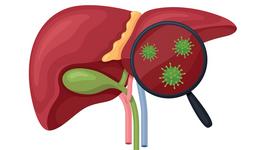Clinical Update: Promising Results From First-of-Its-Kind CRISPR Trial To Treat Solid Tumours
CMN Intelligence - The World’s Most Comprehensive Intelligence Platform for CRISPR-Genomic Medicine and Gene-Editing Clinical Development
Providing market intelligence, data infrastructure, analytics, and reporting services for the global gene-editing sector. Read more...
PACT Pharma is a privately-held biopharmaceutical company developing personalised neo-antigen-specific and off-the-shelf T cell receptor (TCR)-T cell therapies to treat a range of solid tumours.
Last week, the company shared results from a Phase 1 clinical trial evaluating an experimental CRISPR-edited cancer-specific TCR-T cell therapy, which involved 16 adult participants with breast, colon or lung cancer. The trial was conducted in collaboration with nine academic centres using PACT Pharma's proprietary tumour-specific TCR-T cell engineering platforms. The findings were published in Nature.
A tumour-specific TCR-T cell therapy that attacks cancer
Our immune systems contain T cells that can recognise and kill cancer cells through recognition of neo-antigens by the T cell receptor (TCR). Neo-antigens are a class of tumour-specific antigens that arise through somatic mutations in the genomes of cancer cells.
In most cases, the number of naturally-occurring cancer-targeting T cells will be much too low to mount an immune response capable of eradicating a patient's tumour(s). The therapeutic strategy behind PACT's experimental candidate is devised to boost a patient's own immune sytem by redirecting their T cells to fight cancer.
For the new experimental therapy, which is referred to as NeoTCR-P1, the team sequenced DNA from blood samples and tumour biopsies for every patient in the trial to identify neo-antigens that would trigger a cancer-specific T cell response. They then applied a series of in silico and laboratory analyses to identify TCRs that would be capable of recognising these neo-antigen-specific TCRs.
Patients' T cells were then isolated and CRISPR-edited via electroporation with Cas9 protein, guide RNAs to knock-out the endogenous TCR genes (TCRα (TRAC) and TCRβ (TRBC)), and a HR template plasmid encoding the transgenic neoTCR.
These edited T cells were then scaled up to large numbers and up to three neoTCR-transgenic cell products, each expressing a distinct patient-specific neoTCR, were administered intravenously to each patient following a course of conditioning chemotherapy (to dampen the immune response and make way for the edited cells).
Promising results so far in first-of-its-kind trial
In the published manuscript, the authors report that the CRISPR-edited T cells preferentially trafficked to the tumour and could be recovered from post-infusion biopsies in all patients where biopsies were available. They also note that the CRISPR-edited T cells frequently represented the top 2-20% of immune cells in the tumour, and a reduction in tumour size was observed in some lesions of a single patient with lung cancer.
Expected side effects associated with conditioning chemotherapy were observed across the cohort, and two patients exhibited potential side effects from the gene-edited cells, including transient fevers and chills, and confusion. Overall, the findings show that the NeoTCR-P1 cells were well tolerated with promising early indications of clinical activity.
The NeoTCR-P1 trial is the first to evaluate a gene-edited therapeutic candidate that has undergone knock-out of endogenous genes (i.e. naturally-occuring TCR-encoding genes) by substitution with genes isolated from the same patient, in this case the identified neoTCR-encoding genes.
We will continue to provide further updates on this trial as they emerge. For a complete overview of current gene editing clinical trials, check out CRISPR Medicine News' Clinical Trials Database.
To get more of the CRISPR Medicine News delivered to your inbox, sign up to the free weekly CMN Newsletter here.
Tags
ArticleNewsClinical News UpdatesSolid TumoursPACT PharmaTrials
CLINICAL TRIALS
Sponsors:
Base Therapeutics (Shanghai) Co., Ltd.
Sponsors:
Base Therapeutics (Shanghai) Co., Ltd.







